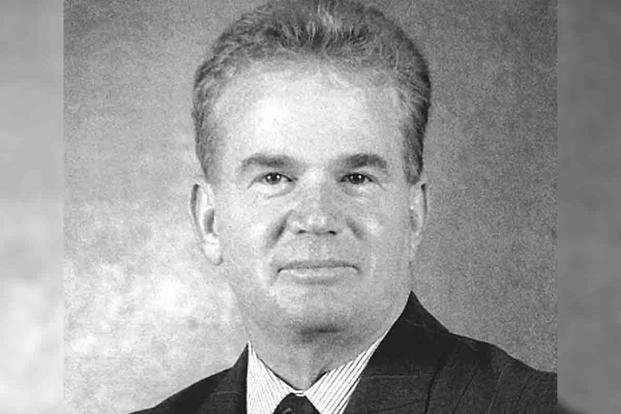America may know Katy Perry as a bubbly pop music singer and judge on ABC's "American Idol," but in the world of real estate, she's apparently anything but bubbly. Perry and fiancé Orlando Bloom are in the middle of a trial that could result in an 84-year-old Army veteran and entrepreneur being forced out of his home as he dies from Huntington's disease.
Carl Westcott is a veteran of the 101st Airborne Division who became an entrepreneur when he left the U.S. Army. His most widely known company is probably 1-800-Flowers, but the Mississippi-born businessman has owned car dealerships, real-estate development agencies and a communications company he sold in 1996 for $422 million. He also founded Westcott LLC, a private equity firm that is currently run by his son, Court, whom reality TV viewers might recognize as the husband of Kameron Westcott from "Real Housewives of Dallas."

In May 2020, Carl Westcott finally bought his dream house, a $15 million beachfront home with eight bedrooms and 11 bathrooms in Montecito, California, just outside of Santa Barbara. His neighbors were celebrities and literal royalty: Oprah Winfrey, Ellen DeGeneres, and Prince Harry and Meghan Markle, the Duke and Duchess of Sussex, are just a few of the other residents in the neighborhood.
It was also the house where he intended to live out the rest of his days. In 2015, he was diagnosed with Huntington's disease, a rare condition that causes the degeneration of nerve cells in the brain. Symptoms of his condition include psychological problems, cognitive disorders and dementia, just to name a few. Two months after moving in, he underwent a complicated back surgery related to his condition.
That's when he claims Katy Perry and Orlando Bloom came to buy his house, according to USA Today. They made the offer through their business manager, Bernie Gudvi, who agreed to act as an agent for both parties and is listed as the defendant in Westcott's complaint.
Westcott says he doesn't remember signing any contract with the Hollywood power couple as he was still under the effects of the surgery's anesthesia and was taking opioid painkillers during his recovery. While he did sign the contract, he says that when he came out of the opioid haze days later, he rescinded the document and the couple threatened to sue.
The trial will decide the ownership of the house, but Perry and Bloom are also expected to ask for more than $2.6 million to cover the cost of renting another home while waiting to move in for three years and $3.1 million to cover lost rental income for the house during the same time period. A trial for damages has not been scheduled.
Proceedings for Westcott's complaint began on Sept. 27 in Los Angeles County Superior Court. Court documents show Westcott never listed his home for sale or spoke to a broker about it, and that he intended to live there "for the rest of his life." According to his lawyers, he will not be able to attend court proceedings because he is now bedridden and mentally incapacitated.

"Upon discharge from the hospital, Mr. Westcott was prescribed at least two opiates in pill form that he was to continue taking for pain, which he took as prescribed several times each day," Westcott's lawyers argued in his complaint. "The combination of his age, frailty from his back condition and recent surgery, and the opiates he was taking several times a day rendered Mr. Westcott of unsound mind."
Under California Probate Code, Westcott's lawyers say he was "unable to understand the nature and probable consequences of his actions."
Gudvi, Perry and Bloom's business manager,, argued in court on Sept. 27 that Westcott hired a real-estate broker to sell the house and even oversaw a bidding war between Perry and journalist Maria Shriver. Gudvi's attorney, Eric Rowan, also argued that Westcott was not mentally incapacitated by his condition until 2021.
Rowan cited Westcott's mental fitness to buy the home in the first place as evidenced by his ability to consent to his spinal surgery. According to People, Westcott's broker at Berkshire Hathaway, Cristal Clarke, testified on Sept. 28 that Westcott only rescinded his counteroffer to the couple after Clarke informed him he could sell it for more than the couple offered.
Because of the litigation and Perry''s previous legal battles with similar circumstances, the Westcott family has begun pushing for legislation to protect elderly homeowners. The Protecting Elder Realty for Retirement Years Act, or the Katy PERRY Act, would establish a 72-hour cooldown period during which either party involved in a contract for conveyance of a personal residence, in which one party is over the age of 75, can rescind the agreement without penalty.
-- Blake Stilwell can be reached at blake.stilwell@military.com. He can also be found on Facebook, X or on LinkedIn.
Keep Up With the Best in Military Entertainment
Whether you're looking for news and entertainment, thinking of joining the military or keeping up with military life and benefits, Military.com has you covered. Subscribe to the Military.com newsletter to have military news, updates and resources delivered straight to your inbox.

















